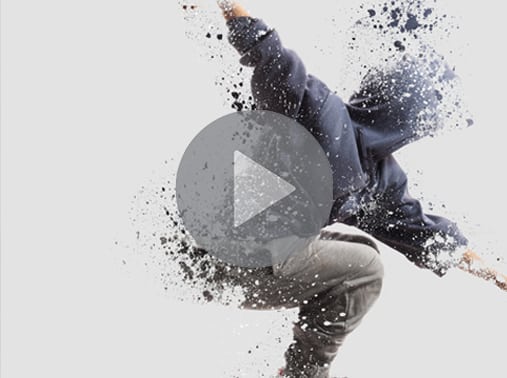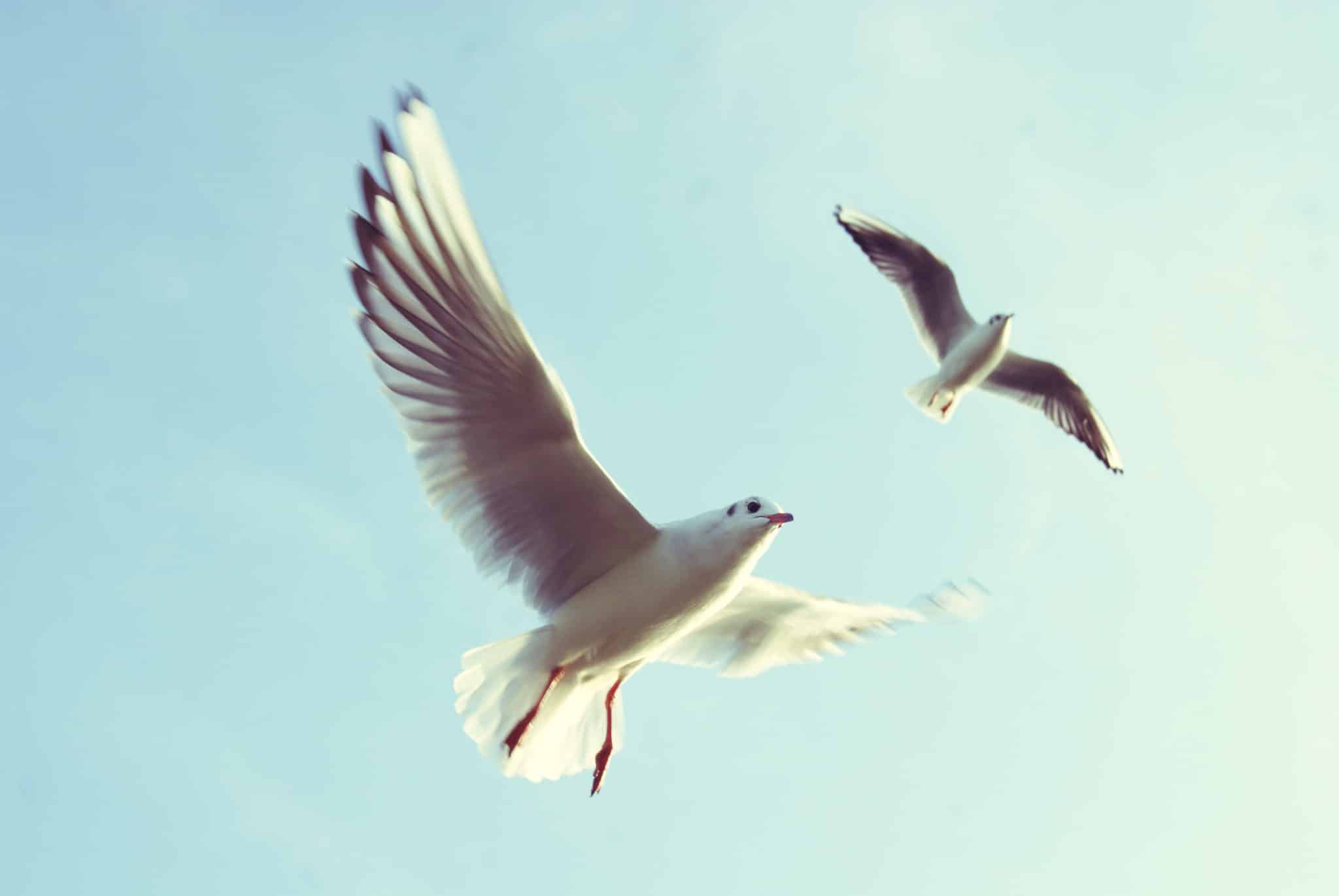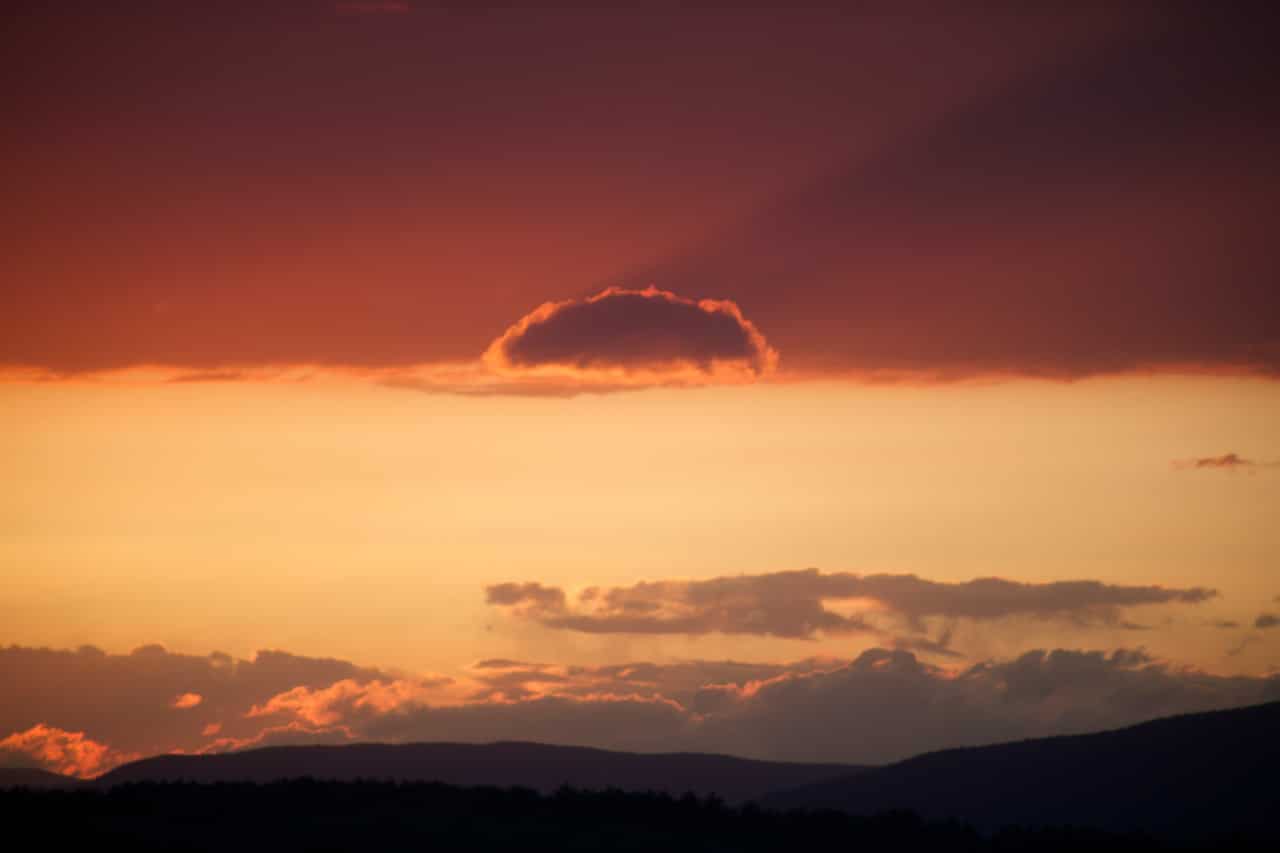Which is Greater: Transcendence or Immersion?
As we read this week’s Torah portion about the intensifying Egyptian Exile and the deepening misery of bondage, one of the most powerful lessons that we can glean from the Exodus story is the answer to the big question: How does one survive difficult times? How did a nation endure genocide and brutal oppression and come out stronger than ever – a nation that thrives till this very day and one that has brought civilization to the world?! On an individual level how can each of us maintain balance and grow through suffering?
What is life? Life is energy and energy is about rhythm.
The mystics call it “rotzo v’shuv” (based on a verse in Ezekiel’s vision “v’hachayut rotzo v’shuv,” literally “and the energy runs and returns”). “Rotzo” is a state of yearning and transcendence; “shuv” is a state of immersion and integration.
The very engine of life is driven by the pulsating dance of “rotzo” and “shuv.” This is true on all levels of life. On a cosmic level, all of existence is essentially Divine breath, throbbing energy, constantly recreating existence. And on a microcosmic level, individual life is fueled by the heart beat contracting and expanding, and the breath exhaling and inhaling.
Psychologically too what makes a human being human is a constant ebb and flow – of tension and resolution, transcendence and integration, abstraction and concretization. Human nature is not satisfied with animal bliss; it consistently reaches upward, aspiring, dreaming – seeking to improve itself and beyond. And then we return – re-immersing and integrating the transcendent experience.
All growth is built on the dual principle of first desiring and striving for something we don’t yet have, and then acquiring and internalizing it. Like climbing a ladder: You see the step above you and then you climb and conquer it. As you climb higher broader horizons open up, feeding our hunger for more and than sating that hunger, only to whet our appetite for experiencing higher states of being.
All growth is built on the dual principle of first desiring and striving for something we don’t yet have, and then acquiring and internalizing it.
A healthy life and a fulfilled one is when we master the balance between these two poles: A healthy measure of both angst and calm, of dreams and their fulfillment. Unhealthy situations are usually a result of imbalance between the two, with either too much tension and too little resolution or the other way around. Some people dream well, but don’t implement; others act but don’t imagine.
No one is perfect, and it requires constant vigilance to ensure that the transcendent yearning should be balanced by contained integration, so that we have our heads in the heavens but our feet firmly planted on the ground. Yet, life gets out of control – and this is the root of many maladies – when one of the two dominates to the extreme. Sometimes this takes on the shape of exaggerated exuberance, unrealistic fantasies and illusions of grandeur. On the other end of the spectrum, the lack of aspiration can easily evolve into despair and resignation – with no hope or faith in a better tomorrow.
Life then is essentially a journey. Its essential nature is one of movement and rhythm, characterized by cycles of ups and downs, dynamically flowing back and forth.
If we were all in touch with this basic truth, the fundamental nature of life’s vicissitudes, we would be able to ride through most of our challenges, even the difficult times. The problem is that even if we understand with our minds the cycle of life, our subjective hearts get caught up in the moment, consumed by either the moment of joy or pain, unable to see the spinning wheel.
Which is why the Baal Shem Tov uses the “spiral staircase” as an analogy for life’s cycles: In Yiddish a spiral staircase is called “shvindel trep,” literally: Swindling steps. Why? Because when you climb a regular vertical staircase, you see yourself getting closer to the destination as you climb the stairs. A spiral staircase “swindles” you, because as you get closer to the destination you have to turn completely around, in a 360 degree turn, to the point where you cannot see the apex. As you climb you keep turning your back to the destination, and just before you reach the top, you must turn completely around for the last time. The key is to always remember, even when your eyes cannot see it and your heart cannot feel it, that we are on a climbing staircase, and we must continue to move.
This is all good and fine in the normal flow of life. We can understand that we all will go through our ups and downs, and need to adjust to the rhythms. But unfortunately at times the “downs” manifest in such intense ways – whether it be in a collective tragedy, as in the Egyptian bondage or the Holocaust, or in a personal tragedy – that all the explanations are rendered meaningless.
Yet, even in the deepest darkness we see that the Jewish people enslaved in Egypt – and then time and again in their sufferings throughout history, till the most recent Holocaust – had some superhuman strength that empowered them to hold on, to become stronger and greater, “the more they were oppressed the more they proliferated and spread” (Exodus 1:12).
This can be explained as the strength that comes from being challenged. But we see that not all nations and individuals react quite the same way in face of suffering. Clearly there is something more.
The Jewish people in Egypt, and throughout the ages, survived and thrived due to their profound, inherent faith in the Divine purpose of existence, which insists on the soul descending and immersing in life as we know it in order to transform the darkest and lowest of places into a Divine “home.”
Though the soul naturally flickers like a flame, yearning and returning in its dual “rotzo v’shuv” dance, ultimately the soul is imbued with the need to immerse which is rooted in the Essence and its “desire” to have a “home” in the “lowest of worlds.”
Initially it would appear that the soul is naturally more transcendent (rotzo) than immersive (shuv).
Initially it would appear that the soul is naturally more transcendent (rotzo) than immersive (shuv). A spiritual person is drawn to the sublime rather than the material, and finds it easier to separate from the material world rather immerse in it.
In truth, however, the transcendent nature of the soul is only in the conscious “personality” of the soul; its nature like a flame is always to rise and be engulfed in its source. But the essence of the soul, which is rooted in the Divine Essence, senses in its total selflessness the Divine desire to immerse in life.
Indeed transcendence is possible only outside of the Essence, not inside the Essence. By definition transcendence means that the given entity is in a state of want. Yearning to reach its source and being repelled by its finite groundings propels the entity to gravitate upward into a state of transcendence. Yearning is a direct result of feeling distance from the object you are yearning for. But within the Essence of reality transcendence and yearning is not necessary nor does it make sense.
Thus the power to transcend comes from a more “external” level than the power to immerse. Transcendence is a state of revelation that needs a reason and cause to transcend, unlike immersion which is rooted in the Essence and its “desire” to have a “home” in the “lowest of worlds,” which is not driven by a reason or cause and is beyond any defined state of revelation.
So the need to immerse in life is actually paradoxical: On one hand it is much more difficult than the inclination to transcend. On a conscious level the soul feels the tug from above and therefore finds it more natural to yearn rather than to immerse. On the other hand on the Essence level immersion is the ultimate purpose, but to reveal it requires our complete dedication and hard work.
This ingrained sense, implanted in the deepest recesses of the soul, that we must immerse in the world (and not escape from it) – and the human effort to completely subjugate itself to this cause – is what gave the Jewish nation in Egypt and throughout the history the power to live through it all the unbearable suffering and prevail in invincible fashion.
Usually we would think that transcendence is what allows us to rise above our suffering world. Yet, here it is actually the need to immerse, engage and refine the world that gives us this power.
The practical lesson for us is this: The best way to face the most difficult challenges in life is not to retreat and disengage from life and retreat. Quite the contrary: We must intensify our engagement and double our efforts in refining the world around us, by committing to an extra act of virtue, to an additional mitzvah – to being a better person and inspiring others to improve their lives.
Such an approach definitely demands more effort and is more difficult. But it is this self-generated exertion (not due to any revelatory inspiration) that generates new energy and changes the universe.
Our efforts are not just revealing hidden dimensions, but actually initiating new ones. But to do so, you and I have do something new.
Doing exactly what our natural habits do not want to do is the newest thing you can ever do.








Fabulous. Absolutely fabulous. This is by far, or maybe I just needed to hear what you have written here, the best article that has been posted yet. Well written and speaking of transcendence in a Jewish way through discussing rotzo v shov. BARUCH HASHEM! May you be blessed to continue your work, your shalom bayit and to write, teach and speak. It is truly a gift and a kiddush HaShem. My life has been made better by your work, and I will take your challenge and do something new. Thank you for the push.
Once again the message rang its truth through my soul and caused pause and reflection. As we take heart in regards to the dance of life can we also say it is sometimes not so clear for all who embark on this journey we call life. The difficult dance is not about the two step the either or, as there are so many subtle steps in between according to the individual evolution of a particular soul. There are those that do not yearn but simply meditate and reach transcendence as they might have done in so many previous lives, it is like breathing. There are those that do not beleive in the participation of the world and only want to live in the transcental world thereby leaving the window of the self open at all times. So many gradations inbetween, as so many souls are unique, according to their karmas. It is not in duality that we view the summit but rather from that point of unity where there is room for all souls to evolve and integrate according to its level of undersdtanding. To say for instance that on the cosmic level existence is divine breath and equate this with energy is perhaps not the total picture. Perhaps on the cosmic level it is all energy having nothing to do with breath in fact the prana in breath is not the breath or air, it is pure potential or energy to the immortal existence which is well beyond breath. Is it not?
Psychologically the ebb and flow was referred to as tension and resolution, but in unified peace there is no tension, only compassionate love, merging. What is animal bliss? Is it not the very creative force that is behind all that is, for some it is as close to God as they will ever understand unity or merging. For others they will aspire to overcome this spark of creative energy to embrace perpetual bliss under all circumstances and have disciplined themselves to move beyond body, and mind into the pure state of awareness and bliss. We cannot just speak of a healthy life as angst and calm. Two distinct poles. Again there are so many gradations inbetween. If we were teaching the personalities to maintain a level awarness instead of the up and down tendencies, if we taught them to outstep the ego self we could aim for a level awarness and participation on an even continuum. perhaps a developed awarness of more reflective tendency rather then a reactive habit.Yes, there is a cycle of ups and downs if you believe in that cycle; or a cycle of creativity and desolution if you use the mind this way. Finally we can ask does the soul want to immerse itself here to have a home in the lower world as we know it to make it (the world divine), or does it reincarnate because of its karmas not really to make it more divine; but to evolve. Or do we want to come back to experience the so called animal bliss having an embodied state as oppossed to a bodiless state which it is often times unprepared for by our teachings. The writing certainly provoked deeper thought about the various approaches to life and our perception of this life we so desperately want to underastand. At best it is difficult to encapsalate what we call essence. Thanks for helping me to reflect on my own intentions. Im not sure this schoolhouse we call earth will ever be refined if it serves as a platform for evolution? But it does not mean we should stop trying either, I guess it depends on our souls purpose. Many blessings upon your reflections and inspired works.
In nature when a seed is planted underground, when it sprouts and pushes against the dirt the stem strengthens so it can bear fruit. If the seed is placed above ground and sprouts without resistance the stem will never bear fruit. We need to confront what challenges us as though it was given to us to make us stronger and better able to bear the fruit life offers us.
I have a chronic health challenge and like our Jewish tradition, I was forced to deal with my challenges or simply accept defeat. To me and in our tradition, that wasn’t a valid choice. To live at the standard we have been conditioned to strive for is a way to be true to ourselves. No matter what the challenge is before me, I feel forced to strive for the standard I was taught was real.
Lakshmi, your comments have deep philosophical resonance. Ever since Plato stepped on the worlds stage Western thought in all its variations has been overly influenced, consumed by, an oppositional understanding of the way things work…tragically.
This is what Nietzsche is getting at when he speaks of overcoming the slave mentality. So long as you define yourself by your opposition to something else, you are a slave to the very thing you seek to transcend…tragic.
Thanks for renewing faith that greater thought is in fact happening.